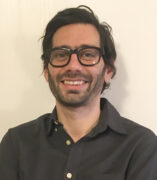
Rodrigo Solinís-Casparius
Anthropology
About
Rodrigo Solinís-Casparius practices landscape archaeology. His research focuses on the social implications in the development of urban layout of ancient cities. He conducted his PhD research studying the road network of the prehispanic city of Angamuco (250-1530 CE), located in the core-area of the Purépecha Empire (Lake Pátzcuaro Basin), Michoacán in Mexico. His research provides insight into how such cities emerge, develop, were inhabited, and experienced by their residents, and the roles that roads played during these processes. Dr. Solinís-Casparius is particularly interested in integrating spatial analysis (i.e. GIS and geographic network analysis), image analysis, and remote sensing (lidar) with other traditional lines of evidence in archaeology (survey and excavation) to study movement and urbanism in Mesoamerica. His other areas of research include ethics of archaeological practice, cultural heritage, and community-based participatory research at mestizo and indigenous communities in Mexico.
Rodrigo is co-director of two archaeological research projects in Mexico within the states of Jalisco (with Universidad de Guadalajara) and Michoacán (with Colorado State University) that include past landscape interaction and urbanism, as well as working with local communities on the understanding and protection of their cultural heritage. He also has other active research projects on the use of digital technologies in Archaeology at Digital Archaeology Lab at UW and the Center for Archaeology and Remote Sensing at CSU.
Rodrigo is a Mexican archaeologist, who studied Archaeology at Universidad Veracruzana (BA) in Mexico, he holds an MA in Cultural Heritage and Conservation at Universidad de Salamanca, Spain, and obtained his PhD at the University of Washington, Seattle. He has been active in the field collaborating for research projects as well as Cultural Heritage Institutions, Museums, Labs and CRM firms in Mexico, USA, Europe and Central America.